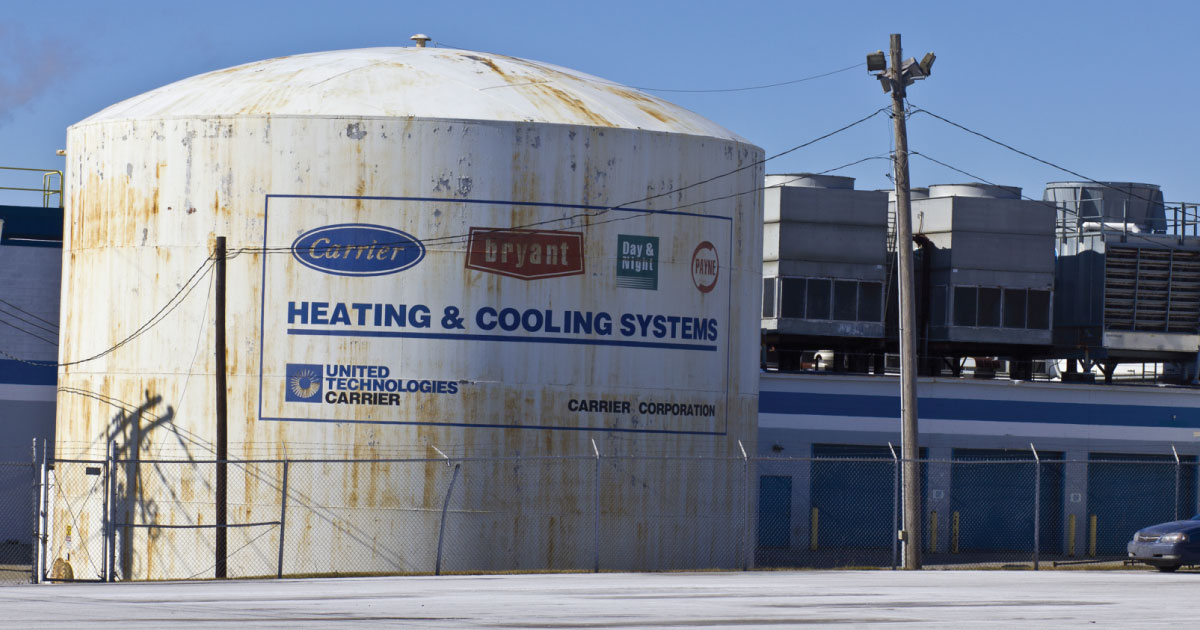The headlines were about President elect Trump saving 800 manufacturing jobs at a Carrier Indianapolis air conditioning plant. But two Business Insider articles do a far better job than the headlines of explaining what the future is of the Carrier plant and American manufacturing employment.
There the news is not so rosy. Why? Because increasingly manufacturing done in America is going to be largely done by robots, not humans. There isn’t anything politicians can do about that.
About the Carrier announcement Business Insider writes from the transcript of a CNBC interview of Greg Harris, CEO of Carrier parent, United Technologies:
GREG HAYES: ” … if you think about what we talked about last week, we’re going to make a $16 million investment in that factory in Indianapolis to automate to drive the cost down so that we can continue to be competitive. Now is it as cheap as moving to Mexico with lower cost of labor? No. But we will make that plant competitive just because we’ll make the capital investments there. … But what that ultimately means is there will be fewer jobs.”
The general theme here is something we’ve been writing about a lot at Business Insider. Yes, low-skilled jobs are being lost to other countries, but they’re also being lost to technology. Everyone from liberal, Nobel-winning economist Paul Krugman to Republican Sen. Ben Sasse has noted that technological developments are a bigger threat to American workers than trade. Viktor Shvets, a strategist at Macquarie, has called it the “third industrial revolution.” Hayes said in the same interview that United Technologies was focused on how to “train people for the jobs of tomorrow.” In the same breath, he seems to be suggesting the jobs it is keeping in Indiana are the jobs of yesterday.
The second Business Insider article is about Republican U.S. Senator Ben Sasse’s take on the Carrier deal. They write:
“Morning news pretends there’s a simple political solution to the declining [number] of manufacturing jobs,” Sasse wrote. “It’s not true. We should tell the truth.” Sasse noted — as have others, such as Paul Krugman, the Nobel-winning economist and New York Times columnist — that trying to keep jobs from going overseas is a temporary fix, given the trend toward automation in the industrial sector. Automation — even more than trade — will continue to shrink the number of manufacturing jobs. This trend is irreversible,” Sasse wrote.
Sasse added that manufacturing employment has been declining for some time and output is still on the rise, which means firms are becoming more productive and employment needs to shift elsewhere. As an example, the Republican lawmaker cited the percentage of Americans who are farmers, which has decreased from 90% of the population in 1790 to just 3% in 1980. This sort of shift will come to manufacturing, he said.
Sasse said “politicians are not good at telling the truth,” but they should be honest with Americans about the changing dynamics of the job market. Essentially, people shouldn’t expect to have the same factory job as the previous generation, and different training is needed.
Sasse, like Ohio Governor Kasich, should be commended for his courage in telling Americans what they don’t want to hear: the truth about the future of manufacturing jobs. That we can’t go back to a 20th Century economy where the core of the American middle class was lots of high paid factory jobs.
For those interested in Carrier and more details on Sasse’s view of how technology, particularly artificial intelligence, is changing the economy two videos are really worth watching. The first from the Atlantic is their take on the Carrier plant. The second is from a session Sasse did for the Foreign Policy Initiative. Go to about the 32 minute mark of the video for the portion about automation. Really impressive!







